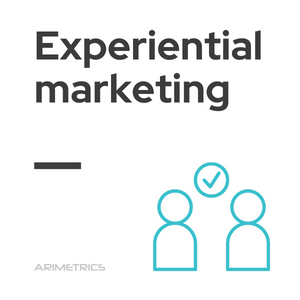
The experiential marketingalso sometimes referred to as Engagement Marketing, is a way of interacting with consumers in order to increase exposure and loyalty to your brand. Brands that effectively practice experiential marketing interact with their customers through multiple digital or offline channels (they actually do it anywhere such consumers spend time). Strategic use of social data and affinity ensures that consumers engage with the brand consistently across their own habits and interests.
Effectiveness of Experiential Marketing
As more and more digital content emerges to compete for consumers’ limited attention, the one-way system of communication between a brand and its audience has become less and less effective. This type of marketing simply doesn’t work with today’s consumers who are always connected and value authenticity above all else. As consumer attention disperses across multiple platforms, marketers need the flexibility to keep up with fast-moving and changing trends.
Key strategies in Experiential Marketing
For experiential marketing to be effective, brands must implement strategies that foster a genuine connection with their consumers.
Some of the most effective strategies include:
- Experience personalization: Tailoring interactions and offers to individual consumer preferences can significantly increase engagement.
Using behavioral and preference data helps create more relevant and meaningful experiences. - Community building: Fostering a sense of belonging among consumers can be a powerful tool.
Brands can create platforms where users share their experiences and opinions, which not only increases loyalty, but also generates valuable content for the brand. - Technology integration: The use of emerging technologies, such as augmented reality (AR) and virtual reality (VR), can deliver immersive experiences that engage consumers and allow them to interact with the brand in innovative ways.
Measuring Success in Experiential Marketing
Measuring the success of experiential marketing campaigns is crucial to understanding their impact and optimizing future strategies.
Some key metrics include:
- Engagement rate: Assess how many consumers interact with the brand through events, social media or digital platforms.
A high engagement rate indicates that the campaign is resonating with the audience. - Customer retention: Analyzing customer loyalty after a marketing experience can reveal the effectiveness of the strategy.
An increase in customer retention suggests that the experience has had a positive impact. - Sentiment analysis: Measuring consumer reactions through surveys or social media analysis can provide insight into how the brand is perceived after an experiential marketing campaign.
Positive sentiment often correlates with increased loyalty and engagement.
